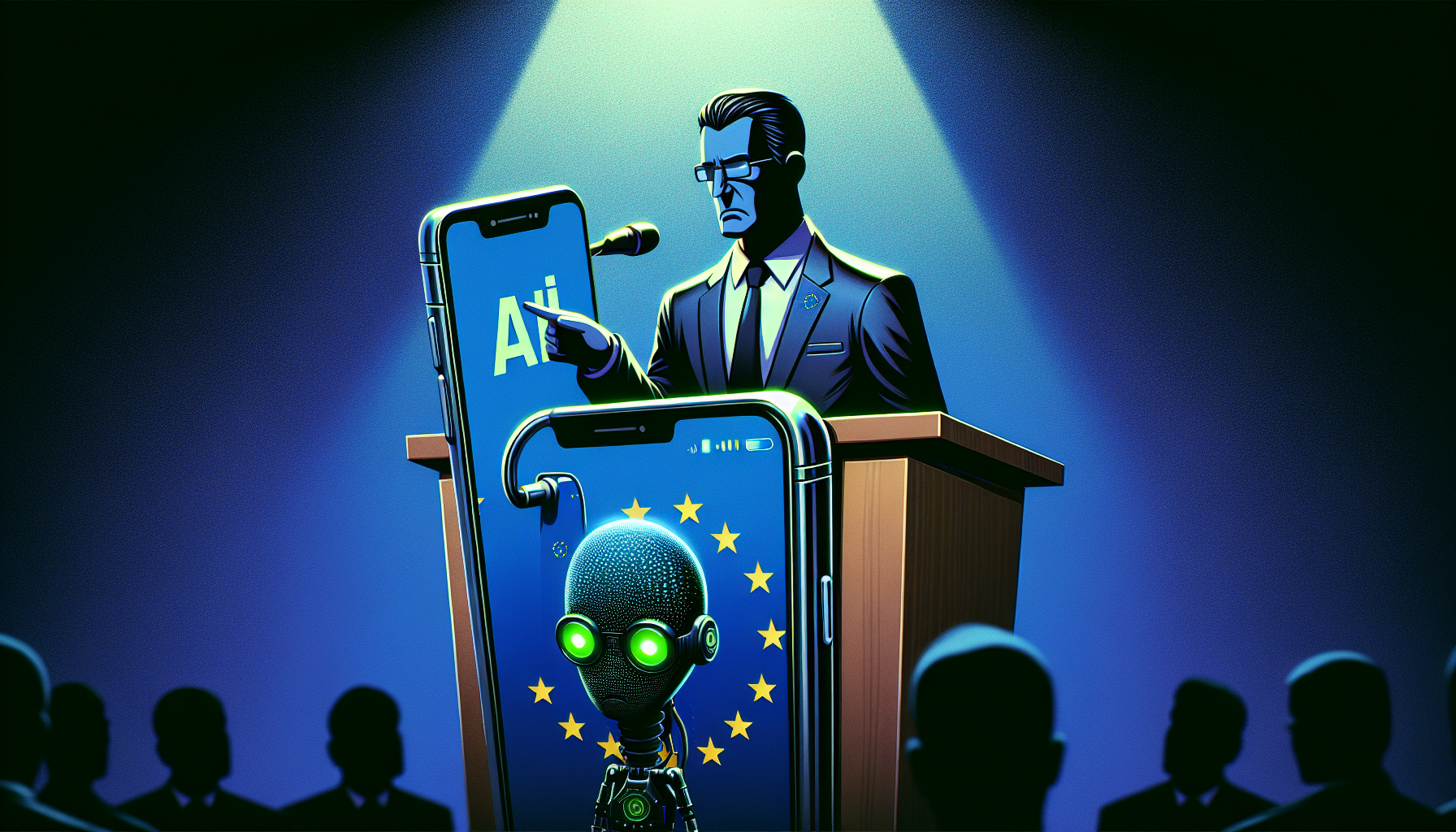
## EU Criticizes Apple’s Decision to Exclude AI Features from European iPhones
### Introduction
Apple’s choice to omit certain AI functionalities from European iPhones has ignited considerable discourse within the tech community. Prior to the launch of the iOS 18 beta 2, Apple declared it would not be introducing Apple Intelligence and other features in Europe due to regulatory issues. This move has faced criticism from the European Union, especially from EU chief Margrethe Vestager. Let’s delve deeper into the consequences of this decision and its implications for both Apple and European consumers.
### Apple’s Regulatory Concerns
Apple highlighted concerns about the Digital Markets Act (DMA) interoperability requirements as the main reason for withholding these new features in Europe. The company stressed that complying with these regulations could jeopardize user privacy and data security. In a statement, Apple stated: “We are concerned that the interoperability requirements of the DMA could force us to compromise the integrity of our products in ways that risk user privacy and data security.”
### EU’s Response
Margrethe Vestager, addressing the Forum Europa in Brussels, expressed her disappointment with Apple’s position. She argued that Apple’s decision is a clear signal of the company’s intent to stifle competition where it already holds a dominant market share. Vestager remarked: “So Apple has said that they will not launch their new enabled features in the IRS environment, and they say that they will not do that because of the obligations that they have in Europe. And the obligations that they have in Europe, it is to be open for competition, that is sort of the short version of the DMA.”
### The Impact on Competition
Vestager further criticized Apple, suggesting that the company’s decision is an intentional move to hinder competition. She commented, “I think that is the most sort of stunning, open declaration that they know 100% that this is another way of disabling competition, where they have a stronghold already.”
### Apple’s Strategic Move
Although Apple isn’t obligated to provide all features in the EU that it does in the US, the company seems to be emphasizing potential downsides of the DMA legislation. Interestingly, international users have reaped benefits from certain aspects of this legislation, such as retro game emulators and game streaming apps.
### Misconceptions and Realities
Apple’s argument implies that compliance with the DMA might necessitate offering Android mirroring on Macs or opening Apple Intelligence to any developer with a large language model (LLM). However, this isn’t necessarily the case. Vestager’s comments suggest that Apple might be exaggerating the regulatory requirements to resist changes.
### The Potential Fallout
Apple’s reluctance to accept regulation could damage its reputation in Europe. The company contends that having Apple Music on an iPhone doesn’t mean it must pre-install Spotify or use Dropbox instead of iCloud for backups. However, these arguments may not be persuasive to European regulators who prioritize consumer choice and market fairness.
### Conclusion
Apple’s decision to withhold AI features from European iPhones due to regulatory concerns has led to a confrontation with EU authorities. The debate highlights broader issues of competition, consumer choice, and the role of regulation in fostering innovation. As this scenario evolves, it will be interesting to observe how both Apple and European regulators manage these complex dynamics.
## Q&A Session
### 1. Why is Apple excluding AI features from European iPhones?
Apple is excluding these features due to concerns about meeting the Digital Markets Act (DMA) requirements, which they believe could compromise user privacy and data security.
### 2. What is the Digital Markets Act (DMA)?
The DMA is a regulation aimed at ensuring open competition in digital markets by imposing specific requirements on large tech companies to prevent monopolistic practices.
### 3. How did the EU respond to Apple’s decision?
EU chief Margrethe Vestager criticized Apple’s move, suggesting it was a strategy to restrict competition where Apple already maintains a strong market position.
### 4. Will European consumers miss out on significant features?
Yes, European consumers might miss out on new AI capabilities and other innovations that Apple intends to introduce in iOS 18.
### 5. Could this decision impact Apple’s market share in Europe?
Potentially. If consumers feel they’re not receiving full value due to missing features, it could negatively affect Apple’s reputation and market share in the region.
### 6. Are there benefits to the DMA for consumers?
Yes, benefits include increased competition, more options for consumers, and access to innovative services such as retro game emulators and game streaming apps.
### 7. What could be the long-term implications for Apple?
In the long term, Apple’s resistance to regulation could tarnish its image and lead to more stringent scrutiny from European regulators, possibly resulting in tougher compliance requirements in the future.
